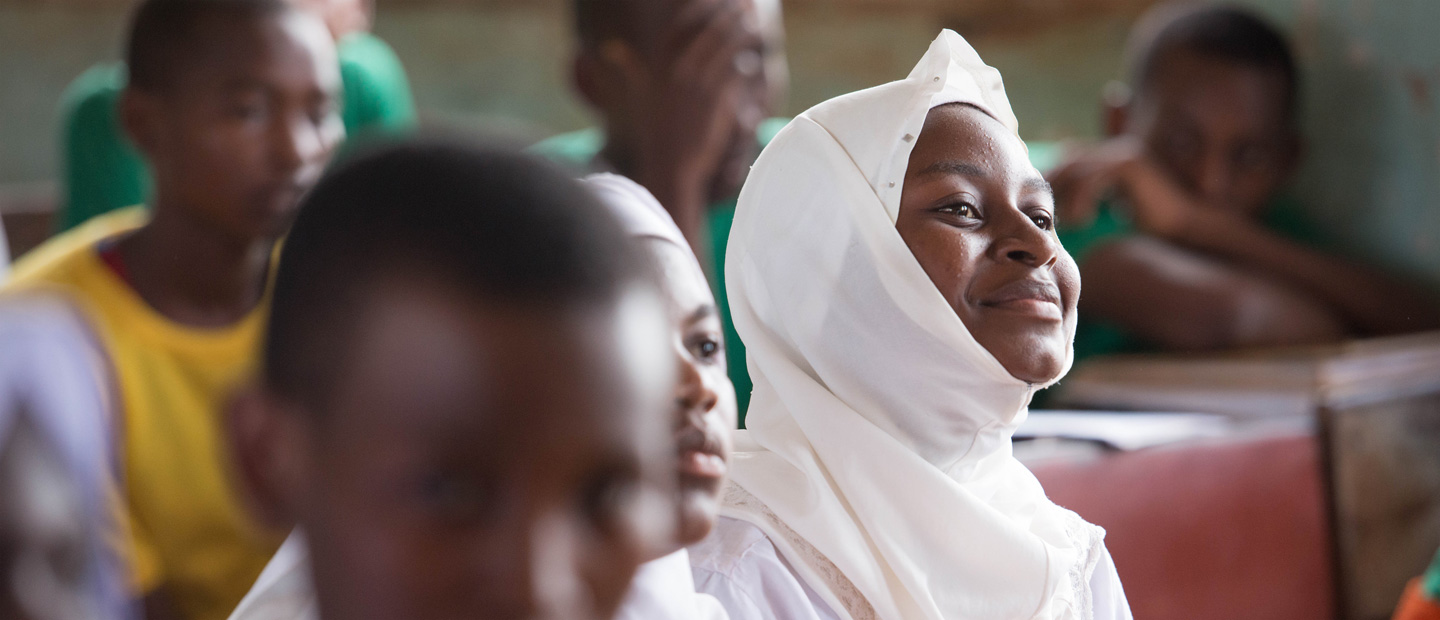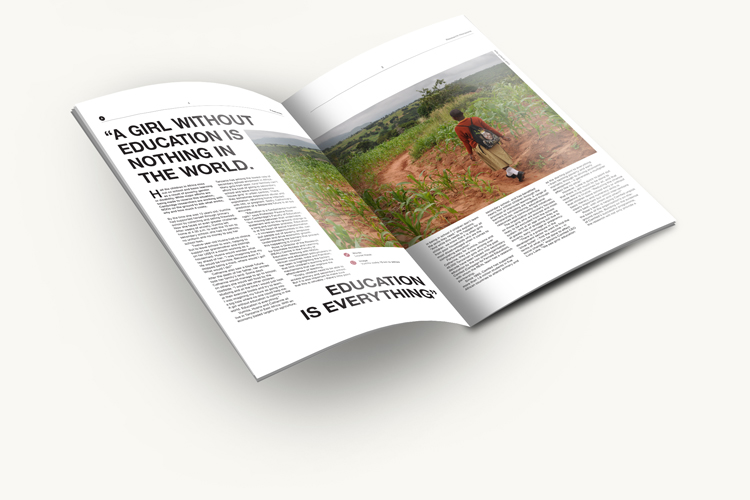
Education is everything - Cambridge Research Horizons

In her feature article in this month’s University of Cambridge Research Horizons magazine, Louise Walsh interviews Pauline Rose, Director of the Research for Equitable Access and Learning (REAL) Centre in the Faculty of Education, and Lucy Lake, CEO of CAMFED, to find out what works to keep the most marginalized children in school and learning, and how NGOs and researchers can help world leaders to meet the Global Goals.
We see girls’ education as the starting point to everything – from tackling poverty and early mortality through to driving economic development – it generates a multiplier effect like no other.
Lucy Lake, CEO of CAMFED
The article looks at the challenges faced by adolescent girls like Catherine, Husna and Vumilia in Tanzania, and the importance of tackling the whole range of barriers girls from poor backgrounds face, including changing the conditions within which they learn.
Through analysis of CAMFED’s quantitative and qualitative program data from Zimbabwe and Tanzania, the REAL Centre has already established how beneficial CAMFED’s holistic support program is. “But we also need to assess why, and how this can be replicated across an education system,” says Professor Rose, whose team’s research informs policy makers and international finance bodies, among others.
Read the feature article: “A girl without education is nothing in the world.“
Join Lucy Lake in Cambridge, UK on Tuesday, 21 February (13:00-14:30) for the REAL Centre Seminar “CAMFED’s experience in positioning data to inform programming“

